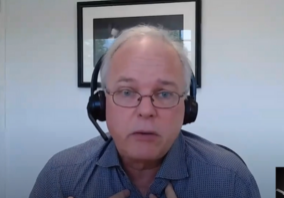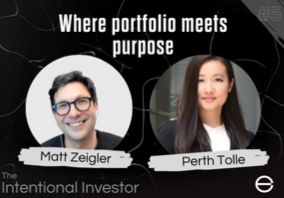There is only one prayer I know which God always answers: ‘O God, make me humble.’
When I was growing up in Minooka, Illinois, I was a nice kid. I was also an insufferable know-it-all. To be fair, I wasn’t the smartest in my school. That honor belonged to Andy Kimble, a math genius who went to USC to study film. He’s now an editor for several television shows. Still, I had a reputation for knowing way more than I ought to have about far too many topics.
There was more than a little bit of small pond effect to this. I have already confessed, after all, to my status as Medium Talent. It’s a big world, and the sooner you realize how many millions of people can think circles around you, the sooner you find your place in it. Ben and I both participate in a fairly competitive online trivia league. Within the hierarchy of the league, I am placed in what is called the “B-rundle”, which is exactly what it sounds like. Nice. Not thrilling…but nice.










(Editor’s note: you can skip all the blah, blah, blah and just read the last paragraph to get to the point.)
You’ve hit on this before when you wrote about the real versus perceived reason clients should hire an FA - not for all his or her smart ideas, but to prevent the client from making emotionally-driven bad decisions. The problem is the client doesn’t want to hear this. He or she wants to believe they are hiring an FA for their super genuineness or at least strong market and financial acumen and not to prevent them from doing dumb things.
Be honest with your clients - tell them all the things you don’t know (why stocks went up or down today or what rates will do in the future) or why a “principal-protected” structured product doesn’t really replicate being long stocks (and has other risks) - and you’ll find it hard to get and keep clients. It’s also one of the reasons why I’ve been a “product” guy - manager of traders, money mangers or strategists (or one myself) - in my career and not a salesperson as I can maintain an arm’s length (or kid myself that I am anyway) from all that unpleasantness.
I do directly manage my mother’s small nest-egg and have since my dad past away 26 years ago. I receive negative compensation for this effort - I make nothing, but have increased aggravation. And there is no client that I have more of an incentive to be honest with - I want her to truly understand what she owns, why and the process behind it, but telling her the absolute truth is exhausting and unrewarding for her and me.
She hasn’t worked all these years, has seen her principal increase dramatically, and, despite shockingly lower interest rates, has seen her purchasing power rise (not a term she’d use, but she has said she knows she has “more freedom with her income” or something like that). She also knows her friends complain that they have less income, so she gets that she’s done well…for a moment. Then the questions come (on different days): how come my interest rates are so low?/ X’s is getting 10% on her money and it’s risk free, can you look into that? / why do I own any stocks? / why don’t I own more stocks? / the paper says interest rates are going up, when will I see more income? / why are you pointing your hand to your head like it’s a gun and mock pulling the trigger?
I have kept her in a diversified portfolio of equity and fixed income via very low cost funds and direct purchases and have kept turnover incredibly low by using redemptions, excess income and the occasional equity buyout to rebalance (which has resulted in her buying low, selling high, overall, and truly capturing the compounding of two long-rallying asset classes) and have maximized her after tax return by studying her tax situation closely and aligning it to her investments. It’s all worked very, very well, but she doesn’t really care about any of that (the process) - she looks at me politely and thinks about what she’s going to have for dinner when I explain these things to her. But if I were to mention a “good” stock to buy or a “new” fund - she’d become all focus and attention.
Why is it hard to be humble - I have the exact, perfect client to be humble with and she doesn’t want humble at all / she makes being humble painful for me. She wants smart / she want confident future predictions / she wants “winning” investments - “the process” that works bores her and leaves her unimpressed. I want to be humble; the client doesn’t want it. I have a feeling, many, many, many in our industry are in the exact same position. I don’t want to exploit the knowledge gap, but my client wants me to - begs me to.
Yep. That’s a big part of why it’s such a dangerous prayer. Humility - or a cooperative strategy - in a competitive game is a recipe for losing. Other than a hard reset, it takes a critical mass of like-minded people to chose the losing strategy, knowing full well that it is a losing strategy, to break that cycle.
It’s very hard. I tried to built a retail quant business around the idea that “this isn’t rocket science,” and we never really got traction. As you say, people want to hear that it IS rocket science. They want you to tell them that it isn’t a black box, but they’re waiting for the wink that says, “OK, maybe it’s a black box.”
But I don’t think that these things are 100% inherent. I mean, to some extent, response to signaling is built into our biology. Obviously. But a huge part of this is how we’ve trained people to think about us as an industry.
Fantastic, thank you!
Humility is certainly one characteristic in short supply.
“I don’t know,” “I was wrong,” “I’ll have to do research on that to get you an answer -” my anecdotal experience has been that about one-in-twenty to one-in-thirty people sincerely and deeply respond positively to hearing this from a professional from whom they are seeking advice.
It’s amazing how well you’ll connect with - work with and form a friendship with - those people, but the other nineteen to twenty-nine will respond with a range of “okay” (with a puzzled look) to having no interest in you anymore. I always thought one could build a heck of a firm assembled purely from a pool of the the positive responders (and even the “okays” if you needed to expand the candidate pool). That firm might have a shot at starting to turn the wheel if it could find enough clients who appreciated its approach.
Could say much the same of US healthcare industry. Aversion to hearing hard truths about one’s lifestyle habits and the harms it wreaks on the body is far more commonplace than those resilient patients who want to hear it straight and are willing to confront the long process of overcoming an ailment. My wife has fantasized about a hospital where care is provided at a flat low cost provided patients agree upfront to zero coddling. Maybe Bridgewater should consider trying it out. But from what I understand about Dalio’s ideology, I wouldn’t call their method valiant so much as brutal.
No great surprise, the military has also grown highly susceptible to ability-signaling and minimizing the appearance of risk. The former was frequently apparent in staff briefing sessions and the latter emerged in even more bizarre ways considering the job of warfare is all about tangible physical risk. Anybody who had to endure a ‘safety stand down’ knows what I mean. The true harm is that institutional learning has ground to a standstill amid this era of perpetual military failure. I only discovered just yesterday that a commissioned study of Army performance in Iraq has been suppressed for years: https://taskandpurpose.com/army-secret-study-iraq-war/
Suffice to say the military did not transition well into the age of enlightened corporate administration nor the increase of individual career incentives that require face-saving and lying. Tom Ricks has remained a sincere critic of of US defense over the years and makes a powerful case why regularly relieving senior commanders was absolutely vital to the health of sound strategy and institutional management. Ever since writing ‘Fiasco’ on the Iraq invasion he remains my go to source for sane defense analysis. I was pleased he took his thinking (along with his Council of the Former Enlisted) away from Foreign Policy and over to Task & Purpose earlier this year.
Wasn’t familiar with Tom Ricks, but now I’m digging into his work. Thanks, Thomas.
He always stumped for frontline troops. Big fan of Gen. George C. Marshall. Ricks ran the gamut critiquing senior military leadership circa 2012 – books/think tank/columns/TV/lectures – but not much of that wisdom ever stuck. Spot on observation from Ricks in late 2017 before McMaster got shuffled off by the current administration:
“It’s been sad for me to watch McMaster in recent weeks because he’s a thoughtful man as well - more emotional, more big and physical than Mattis but an intellectual himself. He wrote a very good book, called “Dereliction Of Duty,” about the Vietnam War and the failures of American generals to tell the truth to American politicians, especially President Lyndon Johnson. And so it’s almost Shakespearean to see McMaster in the White House as the national security adviser faced with the same situation, in many ways, that the Vietnam generals had. And when it’s his job to get up and speak truth to power, instead he appears, in recent days, to have stood up and shielded the president from the truth and dissembled about the truth rather than insisting on the truth.”
Source: https://www.npr.org/2017/05/22/529516184/churchill-orwell-and-the-fight-against-totalitarianism
Also was heard on one the singularly best podcast episodes from early 2018:
http://radioopensource.org/the-state-of-disunion/
Fantastic. Thanks again.